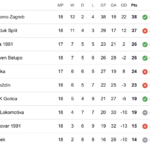They say that taxes are too high to be paid.
Most Croatian citizens believe that tax evasion has an adverse impact on economic growth and are prepared to support the government in combating the grey market, according to a survey conducted by Ipsos for Mastercard, reports Poslovni.hr on June 20, 2017.
Most of the respondents in Croatia, 87 percent of them, agree that the government must fight the grey market, and 77 percent believe that citizens should support its efforts, reported Mastercard.
The survey in Croatia is part of a study on citizen attitudes in ten Eastern and Central European countries (Bosnia and Herzegovina, Bulgaria, Croatia, Czech Republic, Hungary, Poland, Serbia, Slovakia, Slovenia and Romania). In nine countries, the survey was conducted via the internet on a representative sample (aged 15-64), while in Bosnia and Herzegovina an omnibus survey was performed on a sample of 1,000 people.
According to the survey results for Croatia, almost all respondents (90 percent) are aware that avoiding tax is a crime. However, there is a significant group of people who believe that taxes are too high and non-payment is justified (28 percent), as well as a group that believes that, for a successful business, it is essential not to report at least part of the revenues (34 percent).
Still, most people (74 percent) understand that the grey market is the reason why there is less money available for public services such as education, healthcare and road infrastructure. Likewise, more than 70 percent of respondents believe that concealing revenues from tax authorities has an adverse effect on economic growth, while 79 percent understand that it leads to dishonest competition.
Croats are sceptical about the impact of an average citizen on the grey market, but two-thirds agree they should join the struggle against it, limiting the traders’ ability to hide their income.
The solution most frequently mentioned by citizens, which they could themselves use to limit the grey market, is demanding receipts for services and products (84 percent). Two-thirds of people think that they can limit it by avoiding spending money in outlets that do not have fiscal cash registers, while half of the respondents know that paying by debit and credit cards is recognised as one of the most efficient ways to suppress the grey market. For comparison, in Hungary, the level of awareness that payment with cards reduces the grey market is only 13 percent, which is the lowest result in the countries in which the survey was conducted.
However, the research has also shown that in all countries consumers, when they realise they can themselves reduce the grey market, are willing to change their habits and pay more with cards. Thus nearly 80 percent of respondents across the region expressed their readiness to pay more bills via electronic means – from 60 percent in Slovenia, 71 percent in Croatia, to 85 percent in Romania.







